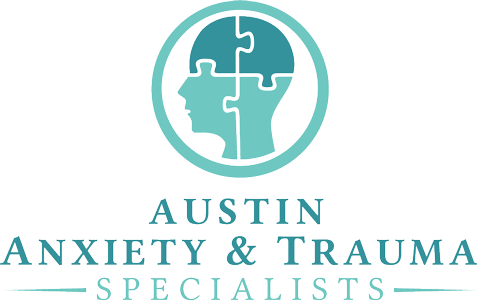Alarming headlines of global unrest, heart-wrenching mass shootings, divisive political rhetoric, and crippling climate change fill our media feeds every morning. When watching traumatic events unfold, feelings of anxiety, anger, sorrow, or hopelessness are totally reasonable reactions. But as dismal updates continue to unfurl, it’s important to take precautions to prevent these feelings from festering and affecting your daily life.
4 ways to cope with crisis
To help curb the impact of tragic news cycles, we’ve assembled four key tips to help maintain your sense of peace.
1. Acknowledge what you’re feeling.
Has anyone ever tried cheering you up by saying, “It could always be worse” or “At least you’re not suffering like they are”? While usually well-meaning, these comparisons effectively invalidate our pain and often end the conversation. This sends the false message that our feelings aren’t important. The truth is, there is always suffering that exceeds your own, but that doesn’t make your feelings disappear. Your feelings are valid. And we encourage you to acknowledge them.
Incorporating mindfulness into your routine is a simple way to take stock of your reactions to distressing news. You’ll learn to react to difficult feelings that emerge by accepting them with self-loving kindness. It’s completely natural to feel scared, nervous, or angry in times of distress and uncertainty. It’s okay to cry too. In fact, crying releases endorphins and can relieve stress!
But for some people, stress may be more difficult to alleviate. It can be exceptionally tough to disengage from worrisome or hopeless thoughts about the future for people who live with mental health conditions like anxiety or depression. And painful flashbacks may be repeatedly triggered for people with PTSD with each news update, accompanied by hypervigilance. If you recognize these symptoms, notice what specifically you are afraid of. Are you predicting something disastrous will happen? If so, are you giving yourself enough credit for your ability to cope if it did happen? For those with mental health conditions, be sure to check in with your therapist and share your stock of emotions.
Above all, it’s important to remind yourself that it’s okay to feel what you’re feeling.
2. Focus on what you can do.
Tragedy is a harsh reminder of how little control we have but there’s relief in shifting our focus from what’s out of our hands to what we’re capable of.
- There’s no way to prevent a natural disaster, but you can control how you prepare.
- You can’t predict the state of the economy, but you can control your own spending.
- You also can’t regulate other people’s behavior, but you can control how you react to it.
Drop your eyes from the far-off horizon of the uncertain tomorrow and look at your immediate surroundings. Helping individuals or people in your community is a great way to start. Find hope in what you can influence, whether it’s supporting, volunteering, donating, voting, or simply being kind to others. You have more power than you think!
And monitor the urge to dive into educational resources or news to quell your anxieties. Articles and news footage meant to inform could be worsening anxiety symptoms. The next tip will help you stay informed without jeopardizing your mental health.
3. Be mindful of media consumption.
Crises are more personal than ever with inexhaustible access to footage on social media. Being an informed citizen requires reading up on current issues, but there’s a point when keeping yourself updated becomes an unhealthy overconsumption of disheartening media. Headlines often elicit fear to drive clicks, but a study by Columbia University and the French National Institute found that 59% of people share articles on social media without reading more than the title. This suggests that fear-mongering headlines may often be exaggerated or taken out of context.
But even credible stories can be hard to take in, especially when binge-scrolling. Overexposure can create a negative headspace and make the future seem bleak. Here’s what you can do to protect your mental health from media overdose:
- Stick to credible, ethical, objective news sources and fact check when necessary.
- Turn off news notifications on your phone.
- Schedule time to catch up on the news.
- Find your limits and take media consumption breaks.
- In your breaks, give more time to activities you enjoy.
Keeping informed is important, but so is your mental health.
4. Connect with others.
You’re not alone in how you’re feeling. Chances are, you know like-minded people who also want to express their thoughts about what’s happening in the world. Reach out to the people in your support group and meet up in a safe space for a talk when you’re ready.
Not sure what you’re feeling, or what to say about it? Journaling your stream of consciousness is a great way to hash out your thoughts and reflect in a tangible and mindful way. For those who are spiritual, many feel a sense of peace and hope by maintaining connection with their spirituality, whether that means meditation, prayer, or participating in their religious community.
The world is unpredictable. Your mental health doesn’t have to be.
With our increasingly connected world, the impact of crises can seep into our daily lives and become hard to manage. If you’re still feeling anxious about the future or uncertainties in the world around you, one of the most sustainable actions you can take to be able to cope in the long term is to seek therapy and learn how to manage a crisis before it comes. It’s never too late.
Start by scheduling your first session at Austin Anxiety and Trauma Specialists and we’ll match you to a therapist who can help you through difficult emotions today—and prepare you for tomorrow too. It’s time for you to feel secure again.






